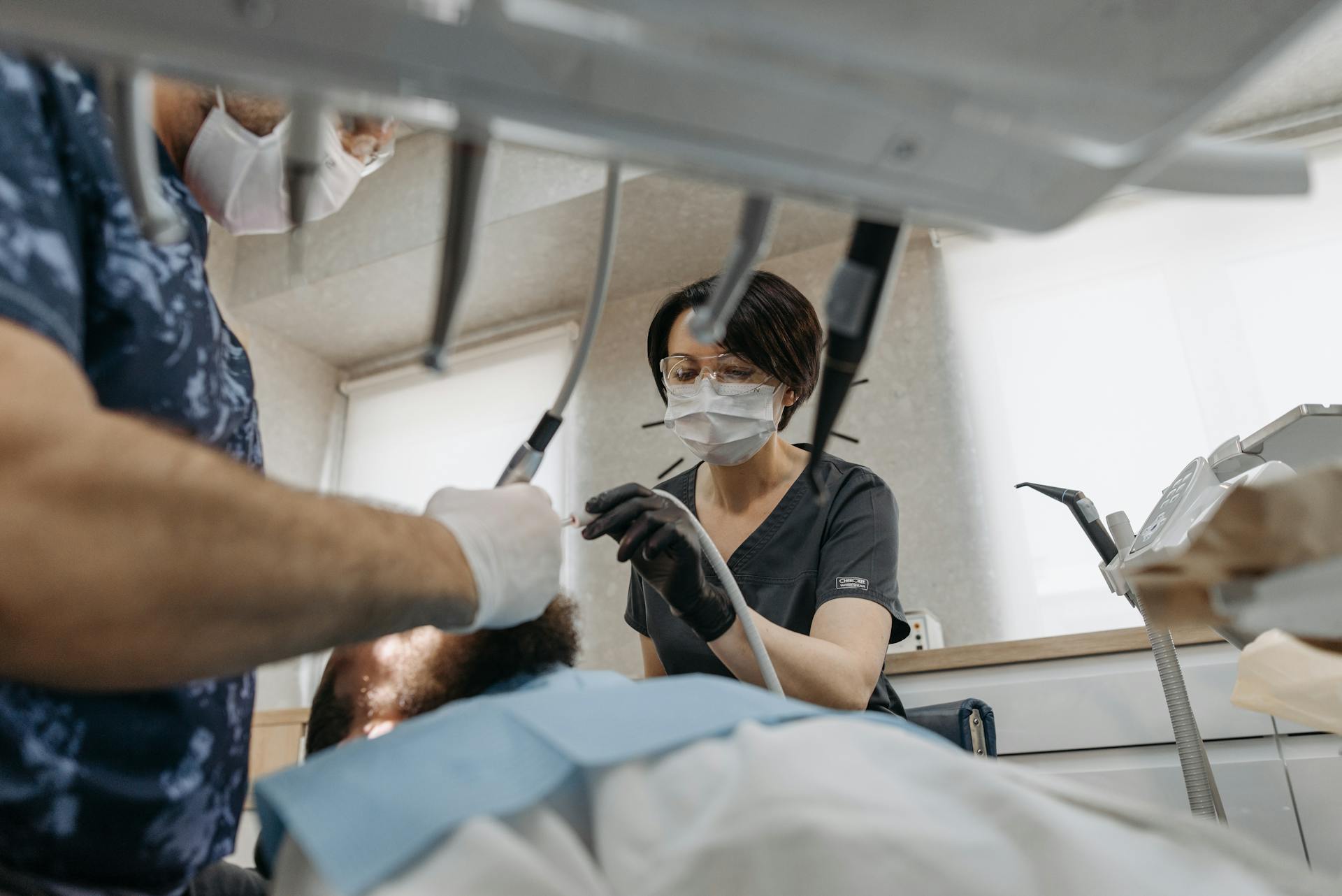While eating chocolate or ice cream might be fun, not everyone thinks about its impact on their teeth. That night out with friends where alcohol was involved isn’t going to make you think of cavities. And missing a few dentist appointments won’t make you think you have periodontal disease.
Periodontal disease (gum disease) is as common as the cold, affecting millions globally. For most people, who don’t know what their options are, they go for traditional treatments. This can include scaling, root planing, and sometimes even surgical interventions.
However, technological advancements have led to options like laser periodontal therapy available. Keep reading to learn more about laser periodontal therapy, laser gum treatment aftercare, and more.
Breaking Down Periodontal Disease
Understanding the connections to oral health can seem as complicated as advanced math. Knowing the fundamentals of periodontal disease is crucial to understanding how alternative treatments can help.
Conditions that impact the tissues surrounding and supporting the teeth are like stealthy thieves and can rob you of your health by causing periodontal disease. It typically begins with gingivitis, which causes inflamed gums. This condition leads to periodontitis if you haven’t visited the dentist to resolve it. Periodontitis involves the destruction of the periodontal ligament and alveolar bone, leading to tooth loss when nothing is done about it.
Traditional Treatment Options
Scaling and root planing are the traditional methods to resolve periodontitis. The process typically involves plaque removal and calculus from the tooth and root surfaces. This can be effective, but these ways have their cons. In cases of advanced periodontitis, surgical intervention can be mandatory to address deep pockets and tissue damage.
Laser Periodontal Therapy: Alternative Therapy
Lasers in dental procedures are like using pressure cookers in cooking. They speed up the process, and the result is better. It’s a minimally invasive procedure, using laser technology to target and eradicate bacteria and infected tissue. It also promotes the regeneration of healthy gum tissue and bone. The primary types of laser used in laser periodontal therapy include diode, erbium, and carbon dioxide lasers.
How It Works
Laser periodontal therapy operates on the principles of selective photothermolysis, wherein specific tissues absorb laser energy. This leads to their destruction/alteration while leaving the surrounding tissues unharmed. The laser is directed into periodontal pockets, eliminating bacteria and diseased tissue.
Plus, the laser energy stimulates the production of growth factors and collagen, facilitating tissue regeneration and attachment to the tooth surface.
Pros of Laser Periodontal Therapy
Getting any medical procedure done can be scary, like a horror film for some patients, especially when it’s your teeth. They’re visible, and any slight mistake can lead to visible results. So here’s what you should know about the benefits of this therapy:
- Minimally Invasive: Compared to traditional surgical procedures, laser periodontal therapy is minimally invasive. This leads to less discomfort, swelling, and post-operative complications. Patients also report faster recovery times and can return to their daily lives quicker.
- Targeted: Laser is a precise form of technology. So it’s a given that it’s exact, and this preserves the healthy surrounding tissue. It minimizes the damage to adjacent structures, reducing the risk of complications.
- Minimal Bleeding: The laser’s thermal energy cauterizes blood vessels as it operates, leading to minimal bleeding during and after the procedure. It contributes to a more comfortable experience for the patient. It also offers cleaner visibility for the dentist doing the procedure.
- Better Tissue Regeneration: Laser energy stimulates the production of growth factors and collagen. It enhances the regeneration of healthy gum tissue and bone. It facilitates the formation of new attachments between the gums and teeth. It aids in stabilizing the teeth and preventing further progression of periodontal disease.
- Comfortable Patient Experience: Laser periodontal therapy has become the best choice for patients because of comfort. The minimally invasive procedure with faster recovery times causes better patient satisfaction.
Are There Any Disadvantages?
Even a simple service like dental cleaning can have drawbacks. This doesn’t necessarily mean the procedure is terrible, but rare cases can lead to complications. From understanding laser gum treatment aftercare to cons, knowing all aspects of laser periodontal therapy is essential.
- Cost: Laser technology is expensive compared to traditional treatments. This may limit patient accessibility, but some insurance plans may cover it.
- Expertise: There’s no doubt that laser technology requires specialized training. Not all dentists may have the necessary knowledge to utilize this technology effectively.
- Suitability: Laser isn’t an option for everyone. Having an experienced dentist to advise and guide you throughout this journey is critical. They can help you find the best treatment for your specific case.
- Limited Penetration: Depending on the laser type, tissue penetration depth can be limited. This can impact the effectiveness of treating deep periodontal pockets.
Laser Gum Treatment Aftercare
Following specific guidelines to support healing is essential to minimize complications post-laser gum treatment. This includes:
- Gentle brushing
- Interdental cleaning with floss or specialized brushes
- Rinsing with antimicrobial oral products
- Avoiding tobacco products
- Following a soft diet
- Limiting alcohol and caffeine
There might be some discomfort; your laser gum treatment aftercare will take care of that. Dentists usually recommend cold compresses to reduce swelling. You can also take over-the-counter pain relief, like ibuprofen.
Get Better Oral Health with Definitive Dental
Keeping up with fashion trends and technology is similar; it’s hard to know what’s constantly happening. Laser periodontal therapy is minimally invasive, automatically making it more approachable for patients. Even when considering laser gum treatment aftercare and results, there might be better approaches for some.
At Definitive Dental, we believe in taking your smile to new heights. You should feel confident in your smile and happy about your oral health. Our skilled team helps you prioritize oral health for a brighter, healthier tomorrow. Book an appointment with Definitive Dental today to learn more about laser periodontal therapy and how to keep your teeth healthy always.










